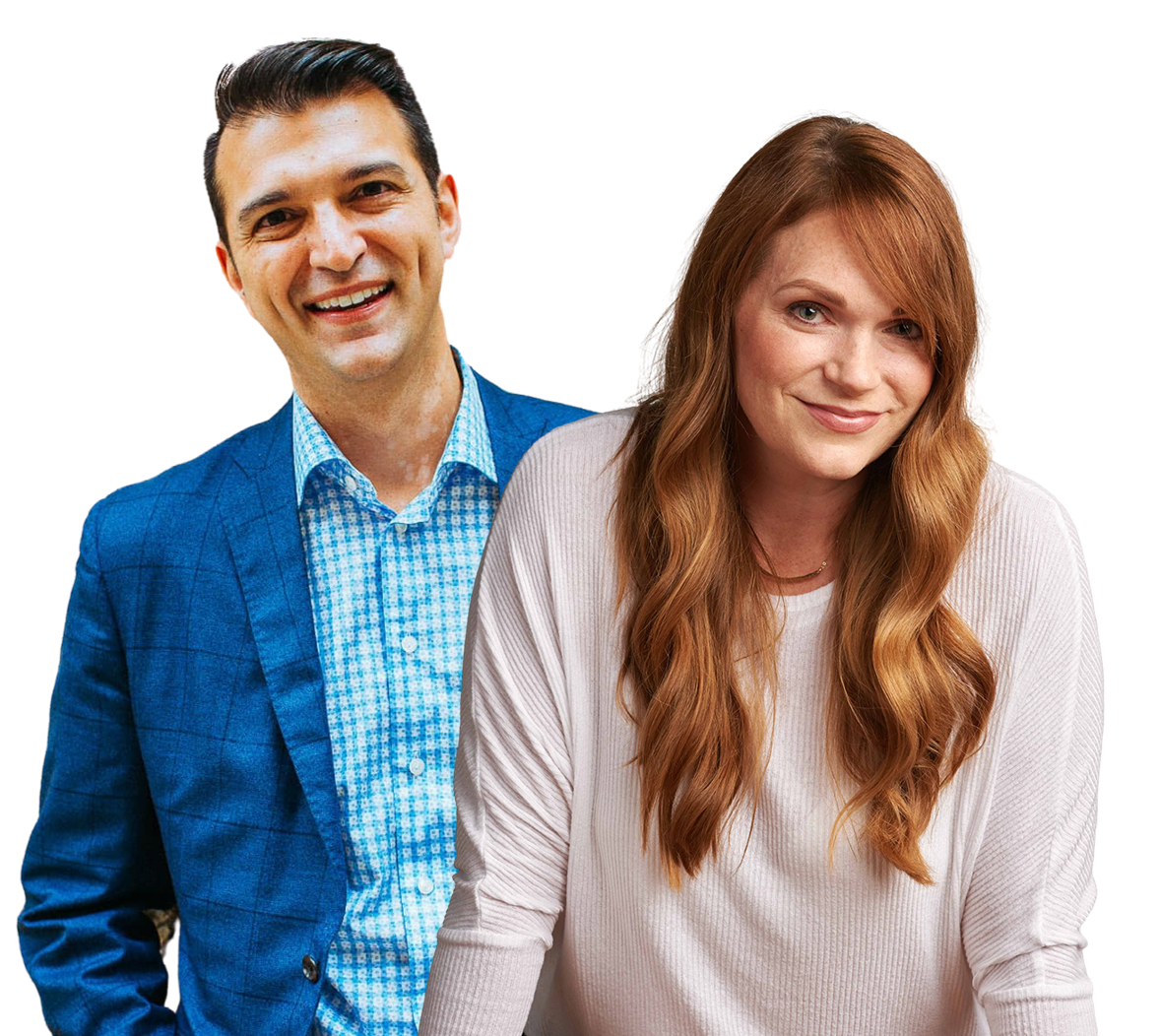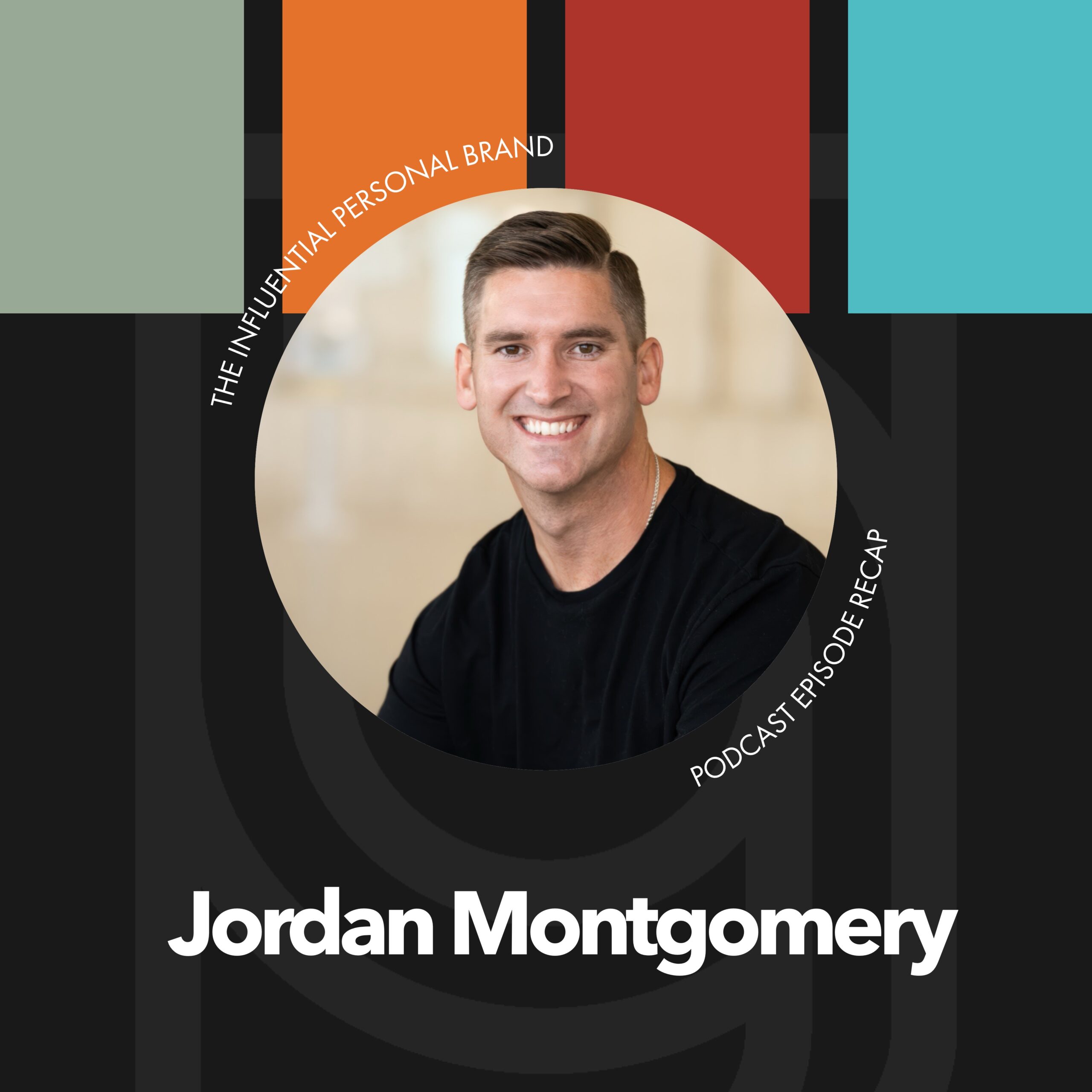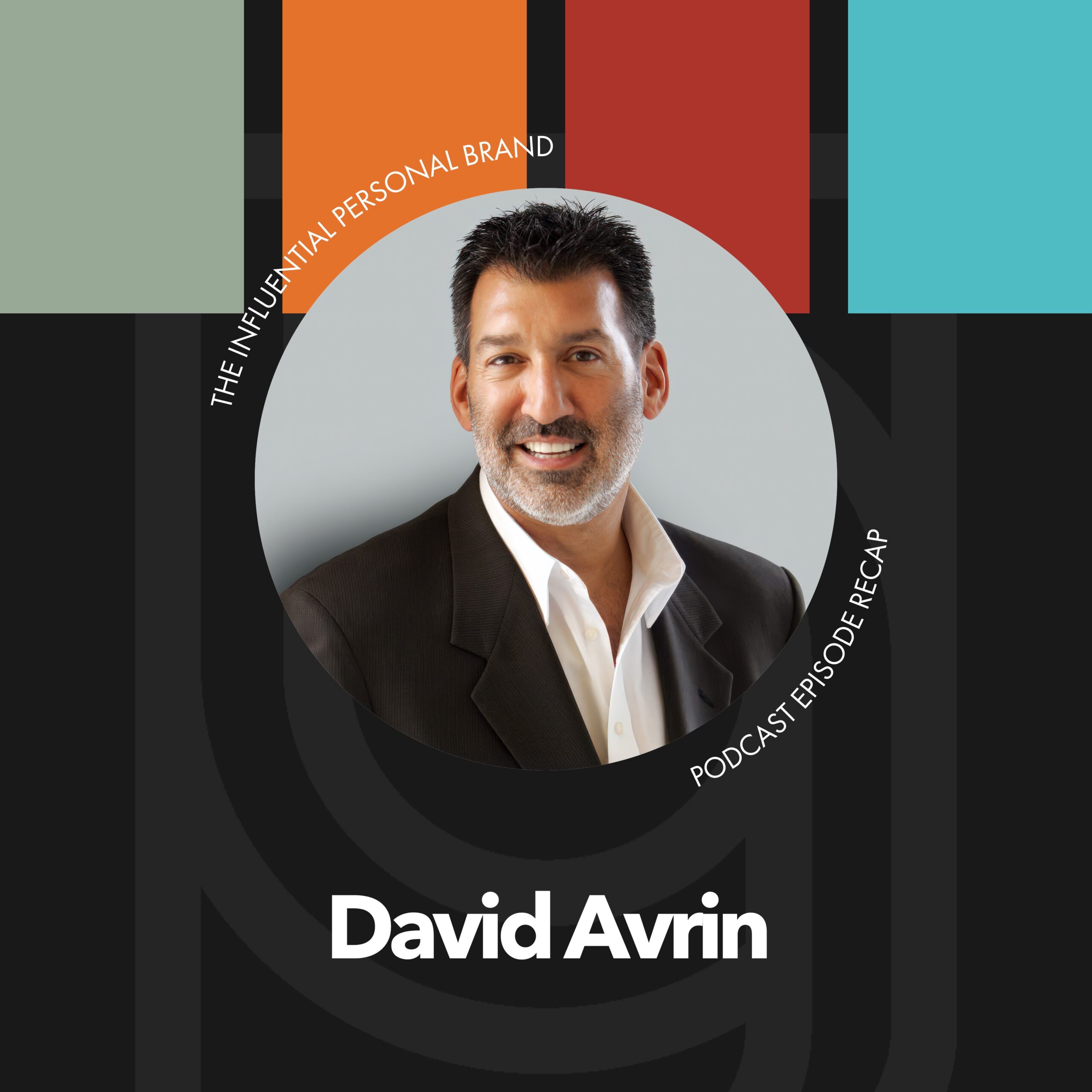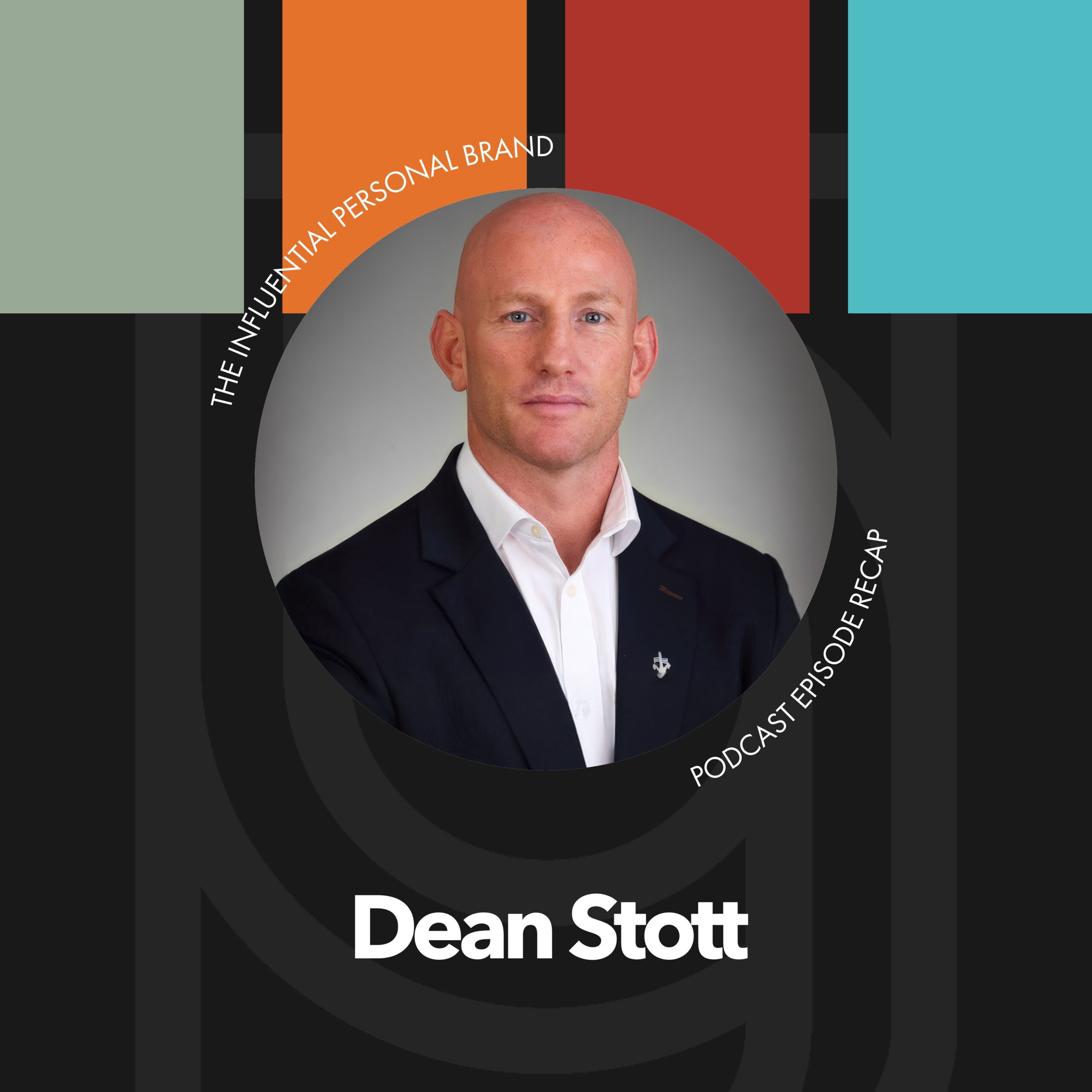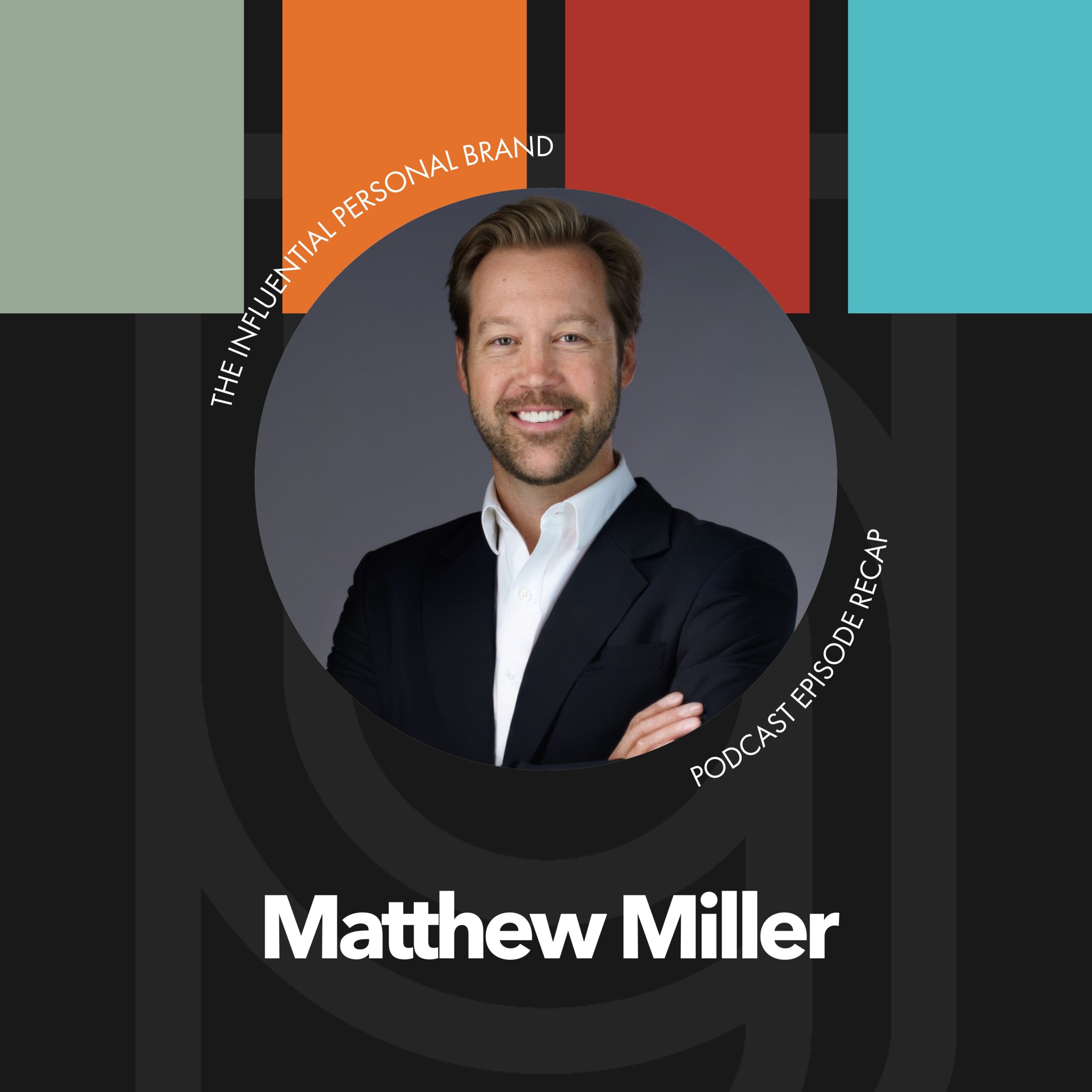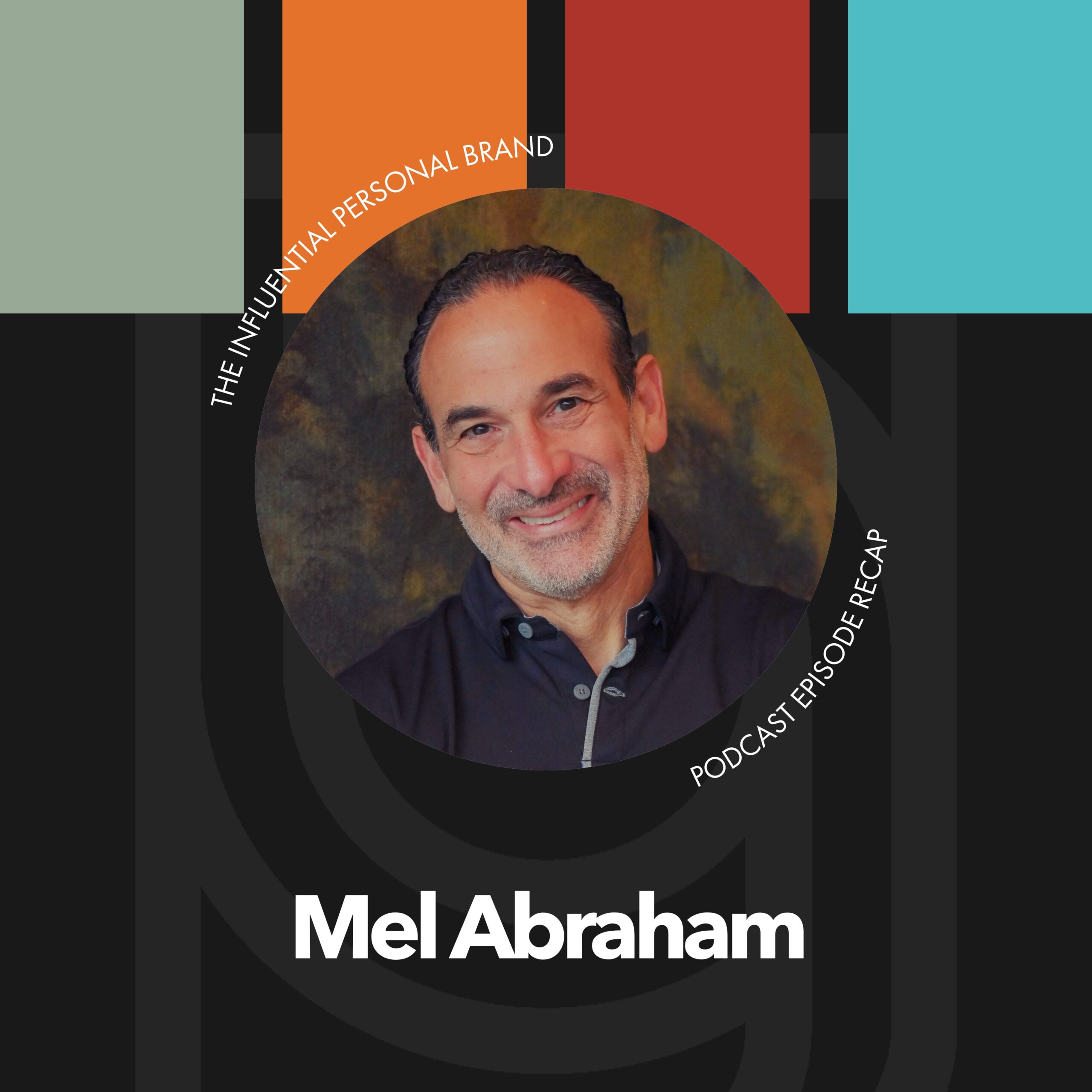RV (00:02):
Some of my favorite interviews on this podcast and show are the ones where we get to hear the story about how a mission-driven messenger or personal brand started in the very beginning. And if you haven’t yet, make sure you go back and listen to the interview that I just did with Annie F Downs, because that’s the story that she tells about how she got started, how she made her first dollars. And I, it’s just so, so inspiring and, um, and actually inspired me. And so I’m gonna share with you some of my, some of my thoughts and highlights from, from the show, uh, from that interview. And then also just kind of like some of the things I want to add to it and, and share with you. Um, the very first thing that I wanna do is something very tactical. I wanna share with you some of the data about podcast advertising dollars, um, because that came up in our conversation.
RV (00:53):
She hosts a podcast and she also runs a podcast network. And so we were talking about monetizing a podcast. Um, and so I asked her in the interview, you know, how much do you charge for the ads? And how much can you really make as a podcaster and when do you start making money, et cetera. Um, and, you know, she, she openly admitted. She’s like, I don’t really like know all of those, those specifics, um, you know, off the top of my head. But, um, you know, she threw out some numbers. And, and then, um, we actually, at Brand Builders Group, we have a course called Podcast Power. And you know, this is where we teach people one, one of, we have 14 courses in our full curriculum, right? So our members who are, uh, paying members of our, of our membership community, they get access to 14 courses.
RV (01:35):
And one of ’em is Podcast Power, and we have a whole section in there on advertising dollars. And so I didn’t know the numbers off the top of my head, but I went ahead and went into the course, grabbed that specific section, and I wanted to share a couple of those with you just since it came up in the, in the, in the interview. Um, and it, it admittedly, you know, making money from podcast ads is, is a little bit of like a gray box because it’s, it’s not like it’s, I guess it’s a free market system, right? Like so many things, um, there, there’s not a, a hard and fast rule of how it has to be. Um, it’s driven by supply and demand, and it’s driven by like how many, what your show is about and how much advertisers want you, and they want access to your audience and how convicted they are that your audience is the right fit for them, et cetera, et cetera.
RV (02:21):
So, um, that’s part of what it comes down to. But, um, I did wanna just share with you these are, these are the numbers that we, we share with our paying clients, right? So, and, and if you are one of our members, you can go into podcast Power in our workbook. It’s on page 42, um, of, uh, that workbook’s 137 pages, which, you know, obviously we’ve got lots and lots of content we’re teaching y’all. But, um, so the number that we were using in that conversation with Annie was if you’ll have a podcast that gets about 10,000 downloads per episode, and I loved what she said, and I would edify what she said, that basically the first week, uh, will be a number. So let’s say like 5,000, whatever the number of downloads you get that first week will probably double over the next nine weeks.
RV (03:08):
So if you get 5,000 on the first week, then you probably will get another 5,000 over the next nine weeks. And that’s, we see that to be, you know, about right, too, just like, you know, using rough numbers. So we’ll use 10,000 downloads per episode. Um, right? So if you’re doing an episode every week, that means you’re getting around like 40,000 downloads a month. So that’s a, you know, that might take a couple years to get to give or take some, depending on what your topic is and your, you know, who you are, et cetera, and, uh, your network. But, um, for a 15 second ad, um, and this is what we did, is we sort of pulled together data from our, uh, clients and we work with, you know, some of the biggest podcasters in the world, our clients of ours. And, um, you know, we got hundreds of of members.
RV (03:53):
So we, we see this, but it’s, you know, this is, again, this isn’t like scientific per se. This is our poll of our community to try to put some real numbers to something that’s kind of an obscure conversation. Um, that for a 15 second ad, um, that, uh, if you, if you did four episodes a month, so we’ll just stay there, we’ll just say, if you had 10,000 downloads an episode and then you were doing four episodes a month, an advertiser might pay you around $720 a month, um, which would be, you know, like for four episodes, like $180 per episode. And if you were doing four episodes a month and they wanted, they wanted all four, if they wanted a spot on all four, then you might make $720 per 15 second ad per advertiser, right? So if, if it goes up to a, if a 60, that’s for a 60, a 15 second ad read, if you were looking for like a 62nd ad read, um, those, uh, uh, come out to approximately like $25 each, like, you know, for like a A C P M, right?
RV (05:02):
And so if you go, all right, if we’re gonna have 10,000 downloads per episode, then you would, you, an advertiser might pay, uh, 250 an episode or a thousand dollars a month to be on all four of your episodes. So, you know, Annie off the top of her head, she said, yeah, if you have a podcast that’s getting 10,000 downloads an episode and you have an episode coming out every single week, then you know, I said, what would that podcast make in a year? And she was, she was reluctant to answer, but she threw out a number that was, uh, I think she said like maybe $40,000 a year is what that podcast would make. Um, and you know, when I went and looked up our data and what, what we actually formally teach, um, so we’re seeing around a thousand dollars a month for one 62nd ad read.
RV (05:53):
So that would be $12,000 a year, but that’s only for one 62nd ad read. So if you had three 62nd ad reads, um, in each episode, that would be $3,000 a month or $36,000 a year. So I actually think she was pretty close. I actually think that’s about right. Um, and for those of you that are podcasters are aspiring podcasters, you know, anyone who’s an experienced podcaster knows that if you start the year with 10,000 downloads an episode, it’s gonna grow. And it, it’s always, it’s one of the beauties of the podcasting medium is it’s constantly growing and, um, it’s just a snowball that builds and builds and builds and it’s a really, really beautiful and wonderful medium in that way. So, um, yeah, so that is, uh, you know, a, a good, a good rule of thumb if you get up to a hundred thousand downloads an episode, you know, you multiply that by 10, now you’re talking about making, you know, $10,000 a month per advertiser, uh, which would be like 400.
RV (06:51):
If you had four of those on each episode, that’d be like $400,000 a month or 5 million bucks a year. Like that would be pretty massive. So it may not scale quite up to that, but that’s, you know, you can make real money over it long term. But in the short term, if you’re podcasting, you’re not gonna make much money from advertisers cuz you’re not in front of that many people, right? They’re paying C P m, which is cost per thousand impressions. So you don’t, if you don’t have thousands of downloads, then you’re not getting, you’re not getting many impressions and they’re not gonna be paying you, uh, much for those, right? So, um, that is a little bit of data there. And if you’re an early podcaster, and even if you’re an experienced podcaster, right? Like our, our podcast gets, you know, well north of, of that number, but we don’t, um, we don’t have ads on our show other than our own ads.
RV (07:39):
And so we offer just people, uh, our various free training and we give them a chance to, um, you know, uh, learn from us or engage with us or request a free call at some point. That’s what we really want you to do, right? We want you to go to free brand call.com/podcast and request a call to say, Hey, we’d love to talk to you about what is your dream, what is your vision, um, to build your personal brand and monetize it, and then talk to you about how we do that and how we help people all the way from the biggest personal brands in the world down to people who are just starting out. And we’ve got stuff for, um, every different budget. So anyways, if that’s you, let this be our ad read, uh, here in this and go to free brand call.com/podcast and request a call with us.
RV (08:19):
So I hope that is, I hope that is helpful for you. That was something I wanted to make sure and look up, um, and give to you the, the, the next thing that I was inspired by listening to that, uh, you know, re-listening to that interview, re going over my notes with, uh, uh, Annie and was just, you know, she said something and it was kind of like quick, but she said, get help before you can afford help get help before you can afford help. And this really reminded me of a concept that is in my second book, which is Procrastinated on Purpose, five Permissions to Multiply Your Time. And in that book, which is also based on the, uh, which my, my, my viral TED talk is based on my, my TED Talk’s called How to Multiply Time. Um, we talk a lot about the concept of getting help in your life, um, like extra hands to help you with things and hiring people to do it.
RV (09:15):
And what people always say is they say, I can’t afford it. Like they say, Rory, I would love to hire someone to help clean my house, do my landscaping, edit my videos, write my copy, do my website, et cetera, et cetera. And they say, well, the problem is, I, I can’t afford it. And so I want to reintroduce or remind you, or if you’ve never read my book, um, that second book, the, I want to introduce to you the concept of mvat, M V O T and m OT stands for the money value of time. Now, the, the concept of the money value of time, first of all, should not be confused with the time value of money. The concept of the time value of money is about knowing what is $1 worth today out in the future based on some assumptions of compounding interest.
RV (10:03):
And that’s a powerful concept also, but not what I’m talking about here, right? That’s the time value of money is basically knowing what, uh, an amount of money will be worth at some point in the future, um, based on, you know, compounding interest. M v OT or money value of time is just a very, very, it’s a much simpler calculation and it’s a much simpler assumption and a much simpler thing. It’s a much simpler thing to explain, which is just that all of us have an hourly rate of pay, all of us do. Now, you might not get paid hourly, right? You might be a salesperson on commission, you might be an owner who’s on profits. Um, you, you, you might be, you know, and, and, and an investor who gets dividends, like, uh, we get paid in different ways, but all of us can figure out what our hourly rate of pay is if you just take the total amount of money you earned, right?
RV (11:02):
Whatever you earned in income, and you divide that by the total amount of hours that you’ve worked for a year. Um, and to do it quickly, you know, rough math here is to use the number 2080 for the number of working hours in a year. So if you just approximately, you know, did you take 200 2080? That’s about what HR professionals use to estimate the number of working hours in a year. And if you take that amount and you divide that, uh, take your total income and divide it by 2080, it’ll give you your hourly rate of pay. And what you’ll find is, let’s just say somebody, if, if somebody makes like $150,000 a year, okay? So if you made a $150,000 a year divided by 2080, then that means you make $72 an hour. Let’s say if you make $75,000 a year and you divide that by 2080, that means you make $36 an hour, right?
RV (12:02):
For the, for the, the, the time that you’re working. So here’s the thing, as people always say, I can’t afford it, I can’t afford to hire somebody else, but the the key insight is to realize you already are affording it. You already are affording it. You are paying somebody to do that work. You are either paying someone else at their rate of pay or you are paying yourself at yours. Because if you are using an hour of your time to, to complete any task, I don’t care what the task is. If, if you are completing a task, then the opportunity cost of your time is equivalent to whatever your mvo is, is to say, if, if instead of mowing the yard for an hour, if I took that hour and I use that hour and reinvested it into work and to income generating things on average, that’s the hourly rate of pay I make.
RV (13:00):
So the way to think about it is to realize, you know, if you make $75,000 a year, every hour that you’re doing something is you’re paying $36 an hour to do that task. It’s like a, it’s like a, a price of admission. You’re saying, oh, I’m gonna pay $36 and I’m hiring my, you know, I’m hiring myself to do this. Whereas if I could hire somebody for less than that rate of pay to do that task for me, then I could reallocate that time and I could reinvest that time into things that generate income or generate more money at that rate of pay my mvo or higher. And what you find is that if you do that over the course of time, then your mbot gets higher and higher and higher because you spend more and more of your time. You spend a higher percentage of your time focused on higher income p earning activities, and you spend a lower and lower percentage of your time on non-income producing activities.
RV (13:58):
And then you are you. But that work still needs to be done. It just doesn’t need to be done by you and you’re able to afford it by reallocating your time into higher profit activities. That is the concept of mbot that is, uh, in the delegate chapter, uh, along with another powerful rule called the 30 x rule. In my second book, procrastinate on Purpose, five permissions to Multiply Your Time. But I bring it up here because this is the conversation that Annie was saying is she was saying, I always by help before I can afford help, and that is how it has been with me too. I’ve never felt like I have extra money around to hire the next person. We don’t, but we know we need the help in order to grow. And so what happens is I’m always trying to minimize my lifestyle expenses, right, in order to create more that I can reinvest into hiring people to help us get things done.
RV (14:56):
When you do that over and over and over again, at some point it catches up and now you have people who are getting things done and making things happen, and now you start to make more money and you’re making money off of the system that you’ve built right off of the network or the infrastructure or the, or the organization or the company, because you’ve got a group of people who are all doing things and they’re, you are paying them. That’s, that is what an entrepreneur, that’s what it means to be an entrepreneur. You’re giving life to, uh, jobs around you. You’re a job creator. And Annie’s story was that she, she talked about how she couldn’t even afford to pay her assistant. She could barely afford to pay her assistant. Um, when she first was getting speaking gigs, most of the money was going to the person who was booking the gigs for her. And I’m not saying that I like it. I’m not saying that that’s how it should be. I’m just saying that’s how it is.
RV (15:56):
And if you’re serious about changing the world, if you’re serious about being a mission-driven messenger, if you’re serious about like wanting to do good work in the world, you are gonna have to make sacrifices and you’re gonna have to make short-term sacrifices in exchange for the long-term payoffs that come, which is money, it’s influence, it’s impact, it’s income, it’s purpose, it’s peace. It’s all the things that are these beautiful rewards that show up from, from doing it. But there’s a price that you have to pay right there. There’s, there is sacrifices required. This comes from my first book, take the Stairs, the Pain Paradox. The Pain Paradox says that one of the key mindsets of UL ultra performers, one of the key distinctions that UL Ultra performers have made is they realize that, that the short-term easy leads to the long-term difficult. Meanwhile, difficult short-term choices lead to easy, long-term consequences.
RV (16:55):
And so you gotta make that choice. And that pulls me right into, you know, the third thing I wanted to share with you about what it takes to make it on this journey as a mission-driven messenger. And at the very end of the interview with Annie, I said, Hey, if there was somebody out there right now who’s in, you know, struggling in that moment, what would you tell? What would you tell them? And effectively what she shared is you have to make a decision that you’re not gonna quit at some point in your career, at some point in your life, you have to resolve, you have to conclude. You, you have to come to a, a summary analysis that says, I will not be stopped. I will not quit. I will not give up. I will not abandon. I will stay, I will fortify, I will edify, I will solidify this commitment.
RV (17:57):
I’m not going anywhere. You can’t get rid of me, right? There’s no one in this world who can stop you except you. You are the one ultimately who gives up. You’re the one who ultimately fires yourself. You’re the one who ultimately calls it quits. No one else can do that for you. They can bounce you around from different opportunities and close certain doors, but at the end of the day, you are the one that decides if you’re gonna be successful or not. And you decide and you resolve that you’re gonna keep going even when it’s hard. You, you have to, you have to reach this point in your life. You have to reach this time where you say, I don’t care if it’s difficult, I’m gonna succeed. Even if it’s difficult. I don’t care if it’s inconvenient. I’m gonna succeed even if it’s inconvenient. I don’t care if I’m having a hard time affording it.
RV (18:45):
I don’t care if there’s rejection, I don’t care if there’s fear. I don’t care if I am tired, if I’m exhausted, I don’t care. I am going to rise above that. I am going to succeed in spite of that, I am going to do it anyway. And that is what it takes. That is what it takes to be successful in this industry or any industry. It is that personal resolve that, that discipline, that commitment, that vision and that that persistence to just say, I am going to rise above all that. If the world throws this and that and whatever at me, it doesn’t matter. I will not be stopped. You can’t stop me. I’m going to do everything in my power. Then I’m gonna find a way or I’m gonna die trying. Nobody is gonna wave their wand over you and say, you deserve to be a a messenger.
RV (19:34):
You deserve to be an author. You deserve to be a speaker. Right? You, if you’re waiting for that, you’re gonna wait your whole life. Stop waiting for that and go get it and decide. The only person who waves that wand is you. And you. You wake up and you say, this is what I’m gonna do with my life. I’m gonna inspire people, I’m gonna help people. I’m gonna make a difference. And I will not be stopped. I might get rerouted, I might get tired, I might have setbacks. It might be hard, it might be difficult, inconvenient, uncomfortable, challenging, and it might be scary, but it doesn’t matter. This is the life that I choose for myself. I am in charge and I have a future that I’m pursuing and I am writing my story and I am the author and I decide that this is how it’s going to be. I’m gonna make it. Even if it’s hard, nobody else can do that for you except you.
RV (20:41):
And that is the power that you do have. That power. And, and listening to Annie’s story was just such a great fresh reminder of that to me, right? She was a four-time author, right? She had an agent and four book deals and she could barely, she was barely making it. And now, you know, you see her, she’s on stage in front of thousands of people and she’s got this huge podcast in this amazing network, all these great opportunities. She’s inspiring people, she’s changing lives. Like she’s doing all these wonderful things. And people see and they go, well, I could do that, I could do that. Right? They look at her on stage like, that looks like so much fun. I could do that. Why? How come I can’t do that? Cuz that’s not the job. The job is overcoming the fear. The job is overcoming the inconvenience.
RV (21:28):
The the hard part is all the parts you don’t see. It’s not given up when most people will, right? It’s not accepting someone else’s rejection as, as permanent. It’s realizing it’s just temporary. It’s just a redirection. And you can make that decision right now. And if that’s you and you are ready to make that decision, I would say the first thing you should do is you should come and join us because we are among the very best in the world, if not the best in the world, at helping mission-driven messengers to reach more people and to make this dream come true. We know a lot about it. We’ve done it, we’re doing it. We have several people doing it. We, we, we can help. But you gotta make that decision that you’re not gonna be stopped. So I hope you do that. If you’re ready to make that decision, go to free brand call.com/podcast, request a call with our team.
RV (22:22):
Uh, if not, if you’re not quite at that point, um, just keep tuning in and keep hanging out and keep learning, um, and keep, uh, checking in on these amazing guests and these inspiring stories. We’re so grateful for you that you’re here. Um, share this episode with somebody who needs it. If you would go share, go tell Annie, uh, go find Annie on social media and send her some love. Let her know that you heard her, her on the Influential Personal Brand podcast. Um, and just give her a thanks for showing up and being a part of, uh, this amazing community. So, you know, they, these folks do it for free. They come on here because we’re friends and because they wanna help other people just like you. We’ll catch you next time on the Influential Personal Brand podcast.



